Truth, Objectivity, Meaning and Realism

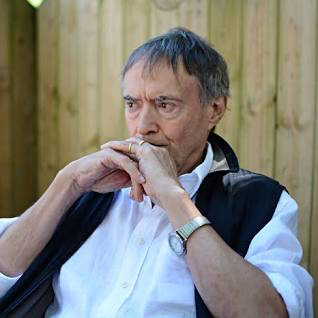
'The sceptical dialectic Kripke developed differed from [Wittgenstein's] both rhetorically and in detail, but its thrust was, at least as I read it, essentially the same: that we have no usable conception of what meanings are that allows for ongoing linguistic practice in accordance with them to be a fully objective matter, constituted independently of what we count as competent use but nevertheless still knowable by us.'
'I’d suggest that we should distinguish the question of the objectivity of a discourse from that of the appropriateness of a realist view of its subject matter. I actually think the issue of objectivity is, or can be, quite straightforward. The central notion of objectivity for a discourse is simply characterised. A discourse is objective when the best methods of assessing its statements are such as to constrain a unique answer to any question formulated within it. '
'I regard the question, what is the best semantic treatment of vagueness, as open. What is not open, in my view, is that classical logic forecloses on the needed room for manoeuvre.'
'I think the great insight of Wittgenstein’s ruminations On Certainty is that all enquiry is, essentially situated in certain (usually tacit) acceptances, some general, others specific to the particular context of enquiry, for which we lack evidence. By that I mean that the epistemic significance of every enquiry, from the most theoretically sophisticated to the most quotidian, rests—at least when one takes a fully reflective view—on a range of presuppositions which serve to underwrite its significance: a rational subject who doubts or is even merely open-minded about any of these presuppositions will regard the significance of the enquiry as undermined.'
Crispin Wright is a British philosopher, who has written on neo-Fregean philosophy of mathematics, Wittgenstein's later philosophy, and on issues related to truth, realism, cognitivism, skepticism, knowledge, and objectivity. Here he discusses rule following and the normativity of meaning, Wittgenstein and Kripke, the 'intention' approach and its problems, objectivity and truth, demarcation issues and realism, cognitve command, the width of cosmological role, the Euthyphro contrast, vagueness, problems with epistemicist solutions, higher order vagueness, his solution to vagueness, ‘ failure of warrant transmission’, responding to scepticism, McDowell's disjunctivist approach, and the demographics of academic philosophy.

3:16: You’ve spoken elsewhere about how you became a philosopher so I wondered whether you feel its been what you expected so far and why, at a time when some question its usefulness, anyone should heed the philosophers?
Crispin Wright: Actually, my own career has turned out very differently to anything I could reasonably have expected when I began on a PhD. At that point I wouldn’t have foreseen a better outcome than a permanent post in a good department, — perhaps even an Oxbridge college fellowship —with a normal load of lectures and undergraduate teaching, and indeed had little reason to be confident about the prospects of that But as things have turned out, I have been blessed not merely with more time for my own research than I ever imagined but with a series of opportunities at three different Scottish universities to lead collaborative leading-edge philosophical research projects: at Arché, at the Northern Institute in Aberdeen and more recently at Stirling. These have been far more exciting and productive than anything I might have managed on my own. They have also provided a training environment for a whole host of early career philosophers, most of whom have gone on to established positions in the profession. I take great pride in this.
As to why anyone should “heed the philosophers”, I guess in the main they probably shouldn’t. Surely not many of the ideas that currently grab the lion’s share of contemporary philosophical debate are of any public significance. One possible exception are the discussions of epistemic injustice, and especially testimonial injustice. Acquaintance with these might encourage more circumspection about online “echo chambers”. And maybe also “post-truthers” —if indeed that moniker captions any ideas that are held in intellectual integrity — could learn from the debates about alethic pluralism. Generally though I am inclined with J. L Austin to wonder whether “importance” is philosophically important.
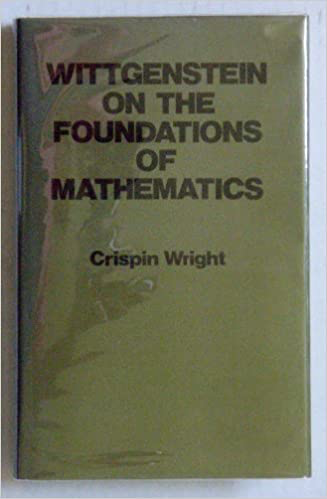
3:16: You’ve been massively influential in the discussion of rule following and the normativity of meaning. Your book ‘Wittgenstein on the Foundations of Mathematics’ back in 1980 looked at what Wittgenstein had to say about rule following considerations in his ‘Remarks on the Foundations of Mathematics’ and ‘Philosophical Investigations.’ So you got to this subject before Kripke’s book on rules and private language. What’s at stake is the issue of how we are able to distinguish correct and incorrect judgement and practice. Your approach, there and in later papers has been to undermine Platonism and investigation-independent truth values. Your initial approach was an ‘intention’ view of rule following. Is this right? Could you sketch how it works?
CW: There wasn’t really an ‘intention’ view of rule-following at the beginning. The main thrust of the 1980 book, as far as rules and meanings were concerned, was that Wittgenstein’s point at Investigations §258 about ‘private language — viz. that such a language could sustain no contrast between what its speaker (PL) judged to be correct use of its vocabulary and what, independently of PL’s judgement, really was correct — has an analogue at the level of the shared linguistic practice of a community. In the case of private language, the distinction under challenge is that between PL’s uses of their expressions that they are comfortable with and the uses that have somehow been established as correct independently of what PL finds comfortable. In the case of communal public language, it is a threefold distinction that is under challenge: that between the uses of the language that, trained as I have been, I find natural and acceptable, the uses that others, equally competent or perhaps expert, find natural and acceptable, and the uses that really are acceptable in the light of the meanings we have bestowed on the expressions in question, independently of what anyone is inclined to say or judge.
Wittgenstein’s point, as I interpreted him, is that the ‘platonised’ conception of meaning that features as the third component in those distinctions is essentially the same as the idea of meaning that is needed to give sense to there being such a thing as correct practice in PL’s language, constituted independently of PL’s ongoing verdicts. The sceptical dialectic Kripke developed differed from this both rhetorically and in detail, but its thrust was, at least as I read it, essentially the same: that we have no usable conception of what meanings are that allows for ongoing linguistic practice in accordance with them to be a fully objective matter, constituted independently of what we count as competent use but nevertheless still knowable by us. Where I parted company with Kripke was over the sceptical rhetoric of there being no ‘facts’ concerning meanings. Rather, so I thought, what is wanted is some scaling down — some ‘de-platonising’ — of the relevant species of fact. It was here that the ‘intention view’ surfaced. For it seemed evident to me that Kripke’s sceptical dialectic applies to intentional states in general: that for example the awkwardness of the question of what constitutes one’s having formerly meant plus by “plus”, as Kripke develops it, is perfectly matched by similar sceptical pressure on the question, “What makes it the case that you intended to work out at the gym today, rather than to dig the garden?”
My response, to simplify, was to suggest that one’s inclination to act on a previously formed intention in this way, rather than that, should be seen as, so to speak, retroactively contributive to the content of that intention rather than simply a matter of keeping track of it and implementing it accordingly. This represented an application to intentional states in general of a model of response-dependence that I had been working on in connection with the more general framework for the interpretation of realism which I’ll say more about below.
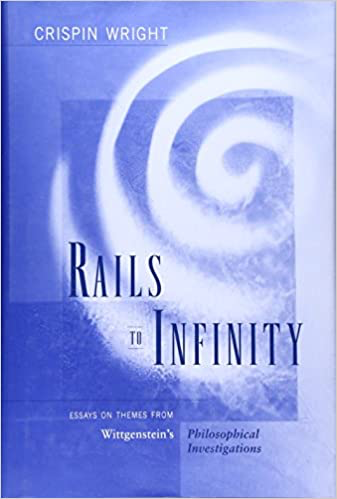
3:16: You’ve recently found some problems with your initial position haven’t you? So what’s your approach now? Is the intention approach a dead duck?
CW: Yes and No. Yes, in so far as I hoped to meet the Kripkean challenge head-on by showing how the facts about one’s former meanings, which his Sceptic argues are fugitive could after all be construed in some form of response- or judgement-dependent way so as to pre-empt all possibility of a sceptical worry about what it would be for one’s ongoing linguistic practice to accord with them, and how one might recognize the fact in any particular case. I now regard that project as misguided. But no, in so far as I still want to acknowledge the Wittgensteinian insight that the correct description of a situation using one’s existing linguistic resources doesn’t involve the kind of double cognitive accomplishment that the ‘platonised’ view of meanings would require: that is, it doesn’t involve both a correct uptake of the situation and, modulo that, a correct apprehension of how ones meanings dictate it should be described. It is the possibility of the second that is challenged by Kripke’s dialectic. The point the ‘intention view’ responded to is that there is no need for the second. One approaches the situation immersed, as it were, in one’s meanings. There is in general no need for a higher order judgement about what they are and whether one is keeping faith with what they were earlier.
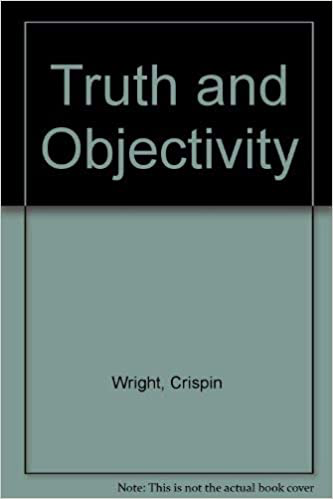
3:16: You’ve also been enormously influential in working on objectivity and truth. Before saying how you solve the issue could you say what you see as the best rivals to your view?
CW: We do have the idea that in some areas of our thought and discourse we are, to borrow Frege’s metaphor, cast in the role of mere geographers—our task is just to taxonomise and theorise the states of affairs with which an independent reality confronts us. We are, some of us, tempted to think of pure mathematics and physical science, for example, like this. However many of us also tend to think that others our judgements are somehow adulterated by the workings of non-cognitive aspects of our natures— by our sensory idiosyncrasies, our tastes, our emotions and our values. Some of us think that talk about Lockean secondary qualities, ethical judgements and judgements of basic taste are like this.
The traditional problem posed by this intuitive distinction is twofold. First to give an account of what the distinction really amounts to, and second, to explain how it might be established that a given type of discourse belongs on one side of it rather than the other. I regard the most important alternatives to the views about this that I like as first the Quietism which some find in the later Wittgenstein, according to which there is no genuine distinction in the vicinity. Paul Horwich and John McDowell arguably espouse such a view (though in different ways); and second the idea, exemplified for example by Michael Dummett’s classic writings on the issues, according to which there is one overarching form of distinction — in Dummett’s case a meaning-theoretic distinction — which applies in all cases.
3:16: So how do you approach this issue of demarcating objective discourse from non-objective ones and why is it preferred to its rivals?
CW: I’d suggest that we should distinguish the question of the objectivity of a discourse from that of the appropriateness of a realist view of its subject matter. I actually think the issue of objectivity is, or can be, quite straightforward. The central notion of objectivity for a discourse is simply characterised. A discourse is objective when the best methods of assessing its statements are such as to constrain a unique answer to any question formulated within it. For any such question, there is thus an answer which, if properly assessed, has to be agreed. So simple arithmetic is objective, and discourse about matters of taste, presumably, is not. But this notion of objectivity does not exhaust what is involved in realism, indeed is not even a prerequisite for regarding a discourse as realist, since the best methods of assessment for the statements of a realist discourse may be variously inadequate.
Realism about a discourse, D, is, as it seems to me, essentially an alloy of two ideas: first that the thoughts we express in D have representational content — that they are apt for assessment as accurate or not — and second that their accuracy is a matter of their representation of states of affairs which are, in some sense, independent of us, —which owe nothing to idiosyncrasies of our cognitive apparatus or contingencies of our emotional or other affective propensities. So there are two things to try to make clearer sense of here: what it is for a discourse to traffic in contents that are apt to represent, and what it is for the putative representanda to be appropriately ‘independent’.
The various cruces explored in my Truth and Objectivity — Cognitve Command, Width of Cosmological Role, the Euthyphro Contrast, and Dummett’s ideas about Bivalence and evidence-transcendent truth— all bear on the project of trying to explain these two key notions. To return to the issue of quietism. I think there are two quite different ways in which impatience with the issues about realism may be motivated. One is if one despairs of the prospect of a satisfactory outcome to the explanatory project just sketched. That, I think, is more or less Horwich’s outlook. But the other — maybe John MacDowell’s—stresses that even if the distinctions just gestured at can be made rigorously explicit, it will remain that they are our distinctions: it will be a fact about us that we implicitly treat different discourses in different ways under the aegis of the contrasts they effect.
It will remain open to ask, are we right to treat aesthetic discourse, for instance, in a way that contrasts with, e.g, theoretical physics? A philosopher – as it were, an ultra-epistemicist (perhaps Tim Williamson is one such) — is so far free to take a stance which has all discourses dealing in potentially evidence-transcendent states of affairs, so as a realist in the sense proposed by Dummett. At the other extreme, a merchant of ‘post-truth’ is so far free to treat no discourse as dealing in representations of matters not of our making, and to regard ‘true’ as simply the device of direct or indirect endorsement that deflationists have long urged it is. The quietist diagnosis of this apparent impasse is to regard the idea of resolving it as invested in the absurd idea of the ‘sideways on’ view — as if we could somehow get an independent take on the real nature of the subject matter of a discourse and thereby determine whether or not our treating discourse concerning it as variously realist or not did or did not do it justice.
Allowing that the idea of a ‘sideways on’ resolution of such issues is indeed romantic, I regard it as an important and unresolved challenge facing contemporary Philosophy to work out a principled response to the implicit metaphysics of ‘post truth’. Such a response will involve disclosing cogent-reason for protecting the validity of the distinctions that quietism rejects.
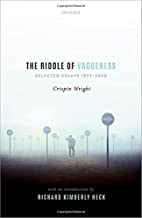
3:16: It’s in this area that you discuss vagueness. Before turning to your approach, how would you characterize the issue of vagueness? You’ve discussed this in relation specifically to the work of Stephen Schiffer and think that the very characterization of vagueness is itself a philosophical problem don’t you?
CW: Well, yes, I do think that the characterisation of the phenomenon of Soritical vagueness is the first thing that the philosopher interested in the topic should attend to, and in particular that the Sorites paradox itself should come later. This is because the paradox, in its usual presentations, depends on inchoate background assumptions about the nature of vagueness that underlie the apparent but presumably illusory acceptability of the major premise in either of the two standard formulations of the paradox.
In one of these, as is familiar, the major premise is a quantified conditional— it says that any two things which differ, if at all, sufficiently marginally are such that if either is F, both are. In the other, the major premise is a negative existential— it says that there is a positive but sufficiently marginal degree of difference such that no pair of things differing within that margin are such that one is F while the other is not. These two formulations are classically, but not intuitionistically equivalent. The second is particularly seductive since, naturally understood, it seems simply tantamount to the denial of precision, which is of course a datum of the problem. Nevertheless, since each way of formulating the major premise is inconsistent with the end-point verdicts of the Soritical reasoning, and since these endpoint verdicts are presumably true, the major premises have to be false. In which case, they must somehow subtly misrepresent the nature of vagueness. Understanding its nature, therefore, is key to understanding that misrepresentation and thereby to defusing the motivation for the premises and, hopefully, leaving us free to accept the Sorites as a disproof of them.
3:16: You think higher order vagueness is an illusion don’t you, but for many this is a key element of the phenomenon, distinguishing it from ambiguity for instance? Why don’t you think it’s a real thing?
CW: Here is something that I think is not a ‘real thing’: that for a typical soritical predicate F, there is between the Fs and the non-Fs in a suitable series a range of cases which merit neither classification but deserve a third description, say ‘borderline F’, and that between the Fs and the borderline Fs in turn there is a range of cases which merit neither classification but deserve a further description, say ‘borderline borderline F', and so on indefinitely (provided only that the series contains enough cases and manifests sufficiently fine differences.) But rejecting higher order vagueness so understood— rejecting the idea of a potentially infinite hierarchy of district modes of borderlineness— is not a commitment to the idea that the original distinction between the Fs and the borderline cases is a sharp distinction. The crucial point to grasp is rather that whereas F and not-F are characterisations of e.g colour patches or accumulations of grains of sand, or whatever, ‘borderline F’ was introduced to say something about us: to mark our inability or unwillingness to characterise certain cases as either F or as not-F. It is, just for that reason, an expression that marks a characteristic of our judgemental reaction to the case: it is not e.g a new determinate predicate of the determinable predicate, ‘coloured’— ‘borderline red’ is not a type of colour marking a buffer zone between the reds and the oranges, say, as ‘purple’ marks a buffer zone between the reds and the blues.
The illusion of higher-order vagueness depends, to the contrary, on implicitly treating ‘borderline F’ as such a determinate — a predicate that competes in the same determinable space with ‘red’ and ‘not red’ —and then noting that, when so treated, we are no more able to identify a sharp distinction between its instances and those of ‘red’ than we were with ‘red’ and ‘not red’ in the first place. A rejection of higher-order vagueness, so motivated, is a consequence of a view about the nature of vagueness that I think I actually share with the Epistemicists. Vagueness is a phenomenon of the ‘drying of the springs of opinion’ as I once put it. It is an anthropological fact that a normal training in a large class of quotidian concepts— par excellence, concepts of secondary qualities in Locke’s sense but also many, many more — fails to put us in a position where we are non-collusively able to, as it were, run them and their complements right up against each other so as to mark a sharp, repeatable boundary. Presented with a suitable soritical series, F at one end and not-F at the other, and invited to work towards the middle with successive judgements in those terms, we are simply not able to alight, to our satisfaction, on a stable transition point – a ‘cut-off’.
But that’s a fact about us. The vagueness of the relevant F consists in full semantic competence with it being consistent with this limitation and — here crucially is where I part company with the Epistemicists —with there being no underlying sharply bounded property referred to by F.
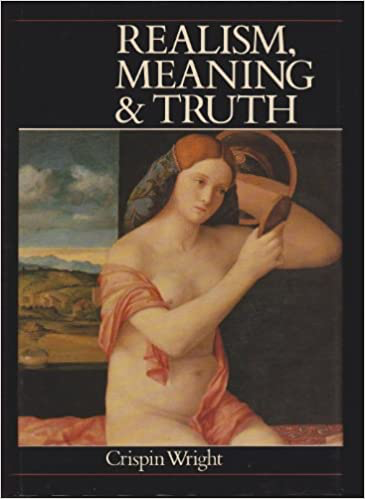
3:16: There are several rival approaches to yours. Why don’t you agree with Tim Williamson and Roy Sorensen’s epistemic approach?
CW: The short answer is: because what they propose is incredible. But it is important to be clear why it is incredible. Roy and Tim can, so far as I can see, agree with what I said above about the basic manifestation of soritical vagueness in the linguistic practice of competent speakers. But they then add the idea that, behind our backs as it were, soritically vague predicates somehow ‘glom onto’ worldly properties that in turn are possessed of perfectly sharply differentiated extensions. This notion provides, to be sure, a very easy solution to the Sorites paradox and a solution which, for those who as Miss Jean Brodie said, “like that kind of thing, is the kind of thing they like”, for it is consistent with classical bivalent semantics and classical logic. But there is absolutely no independent reason to believe that the world contains the called-for repertoire of perfectly sharply differentiated properties nor that ordinary linguistic practice generates the reference relations to them that Roy’s and Tim’s proposal requires.
A genuine solution to a paradox, in the best case, draws only on theory that is independently motivated. It is true that Tim, creditably, attempts an independently motivated account, in terms, famously, of knowledge requiring a margin of error, of why we cannot know exactly where the ‘cut-off’ in a soritical series comes. But even if that account is thought to work, there is much else besides that he needs to explain and doesn’t. For instance, what explains the width of the borderline region — why does our ignorance extend well beyond the putative cut-off point on both sides?
3:16: So what is your solution, and why is it superior?
CW: I believe it should seem superior to anyone who wants a solution that avoids an ad hoc metaphysics of properties and an ad hoc semantics of reference, and who is open minded about the possibility that classical logic may be unfitted for reasoning with vague predicates. What we know, based on the simple point that the major premises are inconsistent with the end-point verdicts, is that since the latter are true, the major premises, in both their standard forms, are false. So take the case where the major premise is of the second form mentioned above: viz. to the effect that that there is no element in the series such that it is F but its immediate successor is not— that is, the form of premise that we naturally but mistakenly initially take as simply expressive of F’s vagueness in the series in question. This is a negative existential. So if it is false, its negation holds: and that is a doubly negated proposition. If, as in classical logic, and as Bivalence demands, we have a rule of double negation elimination, we will then be saddled with the claim that there is after all, a sharp boundary to the Fs in the series. But if we don’t have such a rule then we can consistently disavow the idea that there is no boundary without taking on a commitment to the existence of a specific boundary.
Classical habits of thinking die hard and this suggestion does indeed need further explanation. Suffice it to say that I personally like a semantic treatment of vague statements that is close to the so-called BHK semantics for intuitionist logic. The key elements are an interpretation of truth in terms of knowability, a constructive interpretation of the existential quantifier and an account of negation whereby not-P is known just in case P is known to be inconsistent with something knowable. However I regard the question, what is the best semantic treatment of vagueness, as open. What is not open, in my view, is that classical logic forecloses on the needed room for manoeuvre.
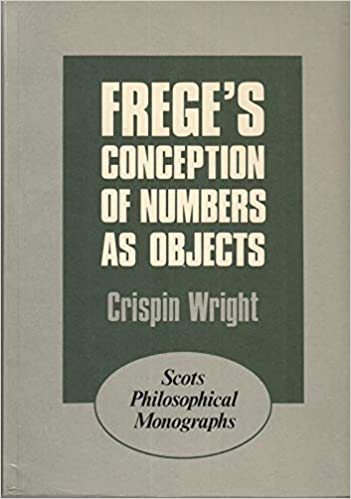
3:16: You’ve discussed ‘ failure of warrant transmission’. This to be distinguished from violations of the ‘Principle of Closure’. These are terms of art so perhaps you could explain what the phenomenon is that you’re concerned with here and how understanding it correctly helps when trying to assess well-known philosophical problems like whether we can be brains in a vat or Moore’s proof of an external world which you’ve grappled with in a long debate with Jim Pryor?
CW: Closure of a property, F, of propositions across entailment, as standardly conceived by logicians, is simply the circumstance that if P has F, and entails Q, then Q too will have F. Transmission is a stronger principle. It entails closure and more: that P’s having F confers F-ness on its consequence, Q. Take F as ‘is knowable’. Then closure simply says that the logical consequences of knowable propositions are all knowable. Transmission of knowledge, or warrant, as standardly understood, says in addition that the logical consequences of a knowable proposition may get to be known, or warranted, by knowing the latter and appreciating the relevant consequence relations. Unrestricted transmission says that you can always get to know a proposition by validly deducing it from propositions you already know. But unrestricted transmission has counterexamples: cases where the order of acquisition of knowledge/warrant of the premises runs through prior knowledge of/warrant for the conclusion. A typical case is where one can rationally credit the significance of the particular evidence offered for the premises only in a context where one already accepts the conclusion.
If — of course this is controversial —one thinks of Moore’s argument, when made fully explicit, as starting from evidence about your visual and kinaesthetic experience as of holding up your hand in front of your face, then the eventual conclusion, that there is indeed a material external world, is— or so it is arguable— something you have to accept in advance in order to be able rationally to credit that evidence with its intended bearing on the proposition that “Here is one hand”. (This ‘arguable’ claim is exactly what Jim Pryor’s ‘Dogmatism’ rejects.) Cohen’s ‘bootstrapping examples’ exhibit the same feature. Transmission-failure is a kind of epistemic circularity in which the conclusion is not, as with regular circularity, (tacitly) assumed as part of the premises but is presupposed as part of one’s collateral information if one is rationally to accept the premises on the specific grounds that, in context, are offered.
3:16: This kind of links with your attempts to characterize and respond to various forms of scepticism. You make a distinction between Humean and Cartesian skepticism don’t you? So what’s the difference? And what about Pyrrhonian scepticism – is that Humean for you?
CW: The distinction I drew between Humean and Cartesian scepticism is probably not a very important one in the end. It corresponds roughly to the distinction I like to make between propositions that concern matters within ones cognitive locality and propositions concerning matters that lie outside it. Ones cognitive locality comprises all matters which, as we ordinarily conceive, can be known by bringing to bear some faculty of direct, non-inferential cognition — so by perception as conceived by direct realism, memory on some construals, perhaps some forms of intuition or direct intellectual apprehension. In these terms what I term Cartesian scepticism makes trouble, in one way or another, for our cognitively local knowledge claims, usually by play with the fantasy of phenomenologically undetectable impairment of the cognitive faculty in question.
Humean scepticism, by contrast, as typified by inductive scepticism, focuses on the hiatus between our cognitively local evidence and what are taken to be cognitively distal matters — about e.g. others’ mental states, or the remote past or future, or general scientific laws, —challenging our justification for accepting that such evidence has the bearing on such matters that we customarily assume. The charge that Moore’s ‘Proof’ exhibits transmission failure lends itself to a prototype of such Humean Scepticism. Pyrrhonian scepticism is, I think, a player in a different game. But there is a point of contact that I’ll touch on below.
3:16: So how do you go about defending certain propositions, such as ‘ I’m not now dreaming’ from sceptical attack? Is your approach still Wittgensteinian?
CW: I think the great insight of Wittgenstein’s ruminations On Certainty is that all enquiry is, essentially situated in certain (usually tacit) acceptances, some general, others specific to the particular context of enquiry, for which we lack evidence. By that I mean that the epistemic significance of every enquiry, from the most theoretically sophisticated to the most quotidian, rests—at least when one takes a fully reflective view—on a range of presuppositions which serve to underwrite its significance: a rational subject who doubts or is even merely open-minded about any of these presuppositions will regard the significance of the enquiry as undermined. There may be the option of a further independent investigation of such a presupposition, but that will be a further enquiry with its own presuppositions . . . And at the level of the so-called ‘metaphysical heavyweights’, like ‘There is an external material world’, ‘There are other minds’, ‘There is a remote past beyond living memory’, and ‘The world is replete with general associative patterns, manifest locally in observable regularities’ etc., we pass beyond the sphere of the independently checkable.
This is not a predicament, a crisis that, though unavoidable, is nevertheless regrettable. It is in the nature of inquiry, qua enquiry, that this should be so. The accumulation of evidential reason to believe is possible only within the framework set by these trusting acceptances. That’s the point of contact with Pyrrhonian scepticism. We have to rest content with a trusting acceptance of a view of the most general features of our world that lies beneath vindication by enquiry. Without it, we forfeit, in particular, our detailed conceptions of evidential relevance—of why, for example, perceptual experience bears on how matters are configured around us in the external world, of why others overt behaviours and physical condition bears on their mental state, and of why local regularities can be expected to reflect general patterns that are sustained in remote regions of space and time.
From this point of view, Descartes’ project of seeking certainties at the foundations of our knowledge is thus fundamentally misconceived. We are never in position to claim any kind of cognitive achievement without implicitly taking for granted certain auxiliary assumptions, some context-specific others purely general, which are not themselves the product of any cognitive achievement to date. The best sceptical arguments display the unevidenced character of these assumptions. But the right conclusion is not that all enquiry is consequently hobbled but that this is how it is with rational enquiry. “Get over it!”, as people nowadays tend to say. However there clearly is such a thing as a cognitive project the significance of whose outcome is compromised by its dependence on an untested assumption. You cannot just take anything for granted in a well-conceived enquiry.
So there is a consequent philosophical project of distinguishing between the things one may permissibly take for granted in a properly epistemically responsible cognitive project — these are ones epistemic entitlements — and the things which, if taken for granted without evidence, would involve a compromise of epistemic responsibility. So finally, absent specific reasons for doubt, one is in a fit cognitive condition to carry out routine perceptual enquiry, is, I would argue, on the good side of that distinction. That one is not at this moment dreaming is a consequence if so.
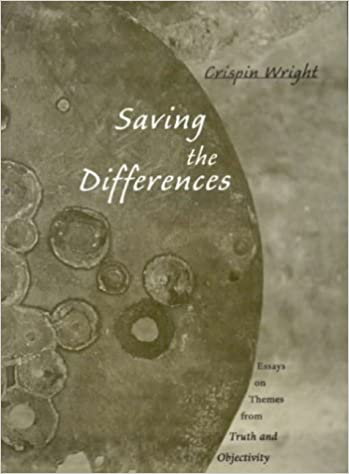
3:16: John McDowell claims that the Lockean idea that there’s no generic difference between waking and dreaming experience is a conceptual error. You’re not convinced that this disjunctivist approach works on the skeptical paradoxes are you? What’s going wrong?
CW: I think it is straightforward to grant John the metaphysical element of his point. Waking perceptual experience is a relational state— or at least it is provided it is allowed to involve direct consciousness of external objects— whereas dream experience is not, but is a purely phenomenal state. But the question is what epistemological significance this distinction carries for the project of addressing ‘the Sceptic’. There is the externalist option of using the distinction to underwrite a factive conception of perceptual justification: if a normal perceptual experience has the content that external things are thus and so, then the information it carries puts the perceiver in position to know – in a suitably external sense of ‘know’ — that things are thus and so. So far, so fine. But the Sceptic’s question is: what grounds do you have for taking it that your apparently perceptual experience is, on any given occasion, just that and not some kind of world-unrelated phantasmagoria?
John, however, as I understand him, does not advance this externalist version of disjunctivism. Rather he holds that, when one is perceiving normally, that one is can be something that is simply apparent to one. And this is not meant to be a flat repudiation of the Sceptic’s teasing suggestion that, in principle at least, dream experience could be phenomenally indistinguishable from the real thing. McDowellian disjunctivism allows that there is no metaphysical limit to the extent to which a dream could simulate normal perceptual experience. This is where I start to lose my grip on the view. The immediate question is how, when one is perceiving normally, is it supposed to be apparent to one that one is not suffering an uncannily lucid and persistent dream. By hypothesis, the phenomenology won’t decide the matter. But what else does one have to go on? Sympathisers with McDowell, like Ram Neta and Duncan Pritchard, have sometimes proposed the answer, “By reflection”. I don’t myself understand that answer. If “reflection” is mean to connote some kind of capacity of pure thought, then it implies that pure thought is capable of discerning that one’s experience has one kind of causation rather than another. That seems very far-fetched. Moreover whatever answer is given, it will sit uncomfortably alongside the concession, which I think I remember that McDowell is happy to make, that were one the victim of a persistent lucid dream, one would not (necessarily) be able to tell that one was. Reflection, it seems, would have to be a capacity that persistent lucid dreaming would impair. In sum: if one is perceiving normally, one can, for McDowell, be somehow directly aware that one is. But a delusional phenomenal counterpart of an episode or normal perception need not be appreciable as such. How then does one tell, when one is, that one is indeed perceiving normally and is not suffering such a superlative delusion? My own view is that one does not ‘tell’ anything of the sort. Rather, we have returned to the domain of epistemic entitlements.
3:16: You’re a formidable philosopher but there are some issues about academic philosophy that seem to need addressing with some urgency – it seems overwhelmingly white and male in a way that isn’t the case in other academic disciplines. What’s your take on this situation? Is there something wrong with philosophy and how it’s done at the moment in universities?
CW: I don’t know actually how bad the current situation is. It would be good to see some up to date comparative stats both for gender and for minorities with respect to each of PhD enrolment, tenure track appointment, and eventual tenure in academic Philosophy. And it would be useful to have a similar breakdown for other Humanities subjects. I do remember seeing some figures for a survey back in 2015 that suggested that things had been improving. The current cohort of NYU graduate students, for what it is worth, currently has a male-female ratio of around 3-to-2. My own hope is that if Philosophy does indeed still remain “overwhelmingly white and male”, that will not have the prevalent concentrations of topic and styles of discussion as a principal cause. Should it prove that it is in fact the subject matter and the way we require our students to work on it that is entrenching the imbalances, then — for those who, as I do, feel that contemporary analytical philosophy is in greater part interesting, valuable, and well done—that would represent an existential crisis.
3:16: And finally, are there five books you could recommend to our readers who might want to go further into your philosophical world?
CW: 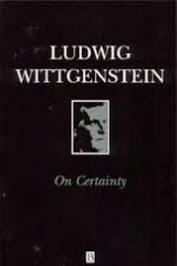
Wittgenstein’s last notes On Certainty have been inspirational for my work in epistemology.
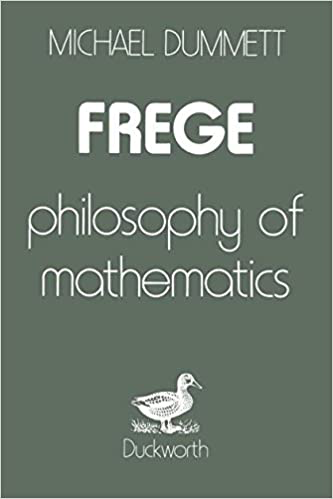
Dummett Frege: Philosophy of Mathematics is the best possible advanced introduction to Frege’s enduringly important thought about mathematics
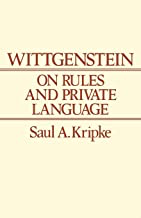
Kripke’s Wittgenstein on Rules and Private Language is simply a masterpiece. Finally, two books whose central ideas I regard as deeply misguided, but which are in my opinion paradigms of what it is like to do philosophy well:
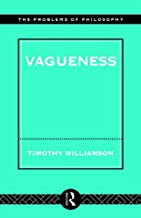
Tim Williamson’s Vagueness and
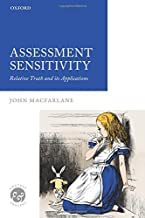
John MacFarlane’s: Assessment-Sensitivity: Relative Truth and Its Applications.
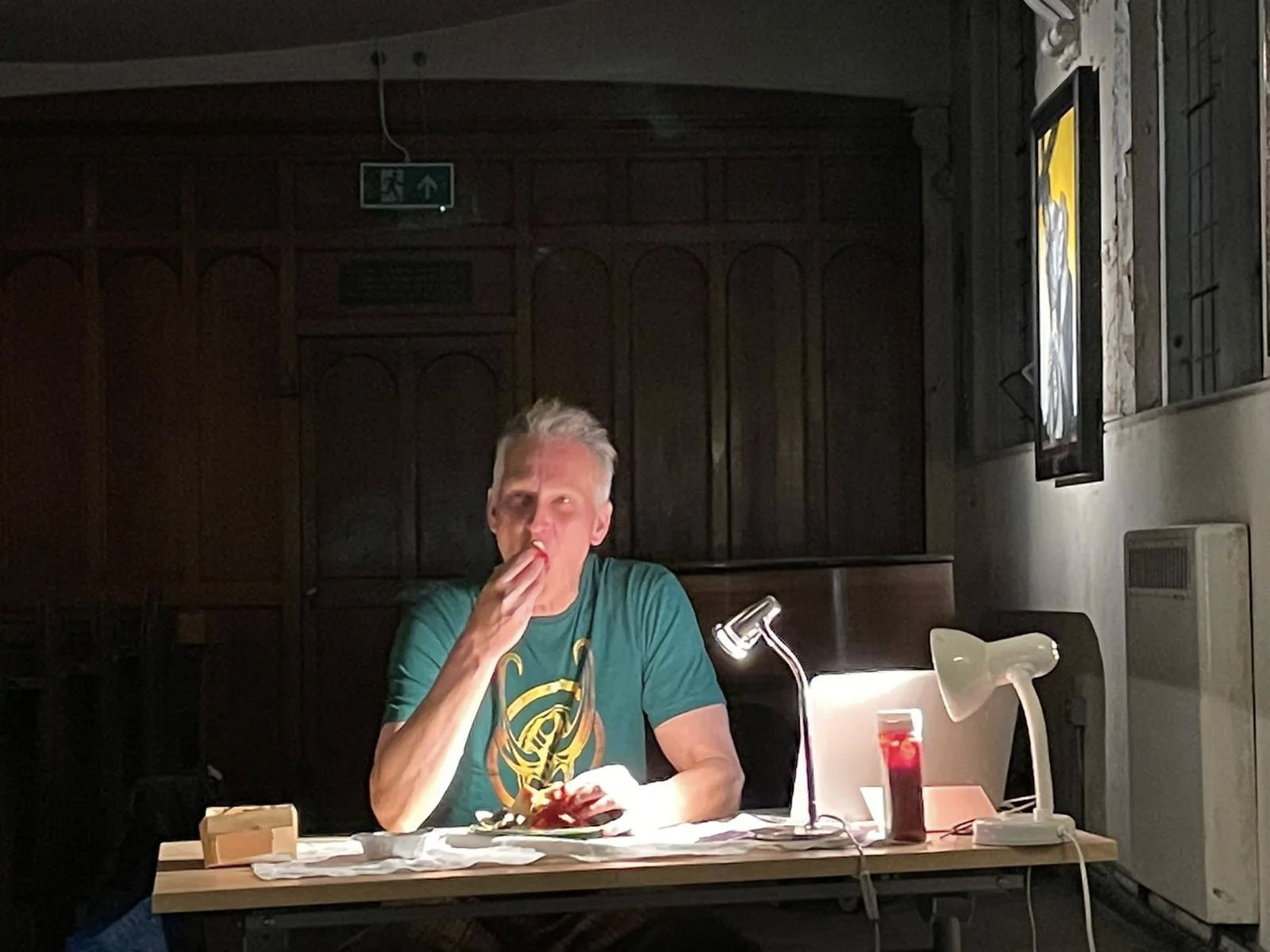
ABOUT THE INTERVIEWER
Richard Marshall is biding his time.
Buy his second book here or his first book here to keep him biding!
End Time series: the themes
Huw Price's Flickering Shadows series.
Steven DeLay's Finding meaning series
Josef Mitterer's The Beyond of Philosophy serialised
NEW: Art from 3:16am Exhibition - details here